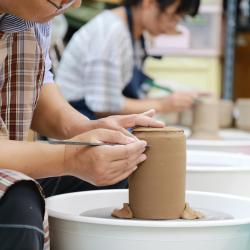The Benefits of Picking Up a New Hobby Later in Life
Youth is often celebrated for its potential and energy but it's crucial to remember that growth and exploration are not just the domains of the young. Picking up a new hobby later in life can offer a wealth of benefits, enriching both mind and spirit in ways that are uniquely rewarding. Whether it's learning to paint, mastering a musical instrument, or diving into the world of gardening, the act of embracing new challenges can profoundly impact one's quality of life. Here are several compelling reasons why it's never too late to embark on a new hobby.
Cognitive Benefits
Engaging in new activities stimulates the brain, encouraging the formation of new neural connections and enhancing cognitive function. This is particularly important as we age, when mental agility can naturally decline. Activities that require concentration, such as learning to play chess or solving complex puzzles, can improve memory, problem-solving skills, and overall mental acuity. In essence, a new hobby can serve as a workout for the brain, keeping it sharp and engaged.
Emotional Well-being
Pursuing a new interest can also provide a significant boost to emotional health. Engaging in activities that are enjoyable and fulfilling can lead to increased levels of happiness and reduced stress. Moreover, the sense of accomplishment that comes from mastering a new skill can enhance self-esteem and confidence. For individuals who may feel stuck in a routine, a new hobby can offer a fresh perspective and a renewed sense of purpose.
Social Connections
Many hobbies offer opportunities to connect with others who share similar interests. Whether through local clubs, classes, or online communities, engaging with like-minded individuals can foster new friendships and combat feelings of loneliness or isolation. Social interaction is a crucial component of well-being, and hobbies can provide a meaningful way to meet new people and build supportive networks.
Physical Health
Certain hobbies offer physical benefits that contribute to overall health. Activities like dancing, hiking, or yoga can improve fitness, balance, and flexibility, reducing the risk of various age-related ailments. Even less intense hobbies, such as gardening or walking, can promote a more active lifestyle and improve cardiovascular health. The physical engagement these activities demand helps in maintaining mobility and vitality.
Opportunity for Growth
Picking up a new hobby is a testament to the idea that learning is a lifelong journey. It presents an opportunity to step out of one's comfort zone and embrace challenges. This growth mindset not only enhances adaptability but also fosters resilience. By demonstrating that it is possible to learn and grow at any age, individuals who take up new hobbies often find themselves more open to future challenges and changes.
Legacy and Contribution
For some, a new hobby later in life may turn into a passion that allows them to contribute to their community or leave a legacy. Whether it's volunteering skills to teach others, creating art that will outlive them, or participating in local environmental efforts, hobbies can evolve into meaningful ways to give back and make a difference.
Conclusion
In a society that often values youth, it’s important to recognize and embrace the potential for growth at any age. Picking up a new hobby later in life is not only a pursuit of pleasure but a step towards a more enriching and fulfilling existence. It’s a reminder that life’s possibilities are endless, no matter the stage. So, whether you’re dusting off an old guitar or signing up for a pottery class, remember: it’s never too late to start something new.






















